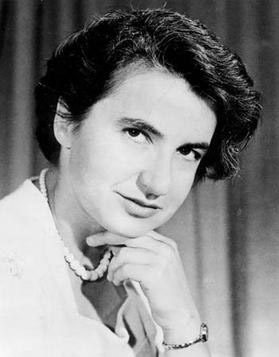Women in Science
“Science and everyday life cannot and should not be separated.” — Rosalind Franklin
Science is poetry in motion, a beautiful one at that. Over the years, Science has evolved into a sophisticated practice, exposing to us the marvels of the universe.
Science is to seek, to know, to balance, to equate, to understand, to be fair. However, history has time and again shown that even within the scientific realm, equity doesn’t, for some sad reason, fit the equation. Science has solved many mysteries and answered many questions. But in ways, it has failed to foster gender equality, at least historically, with regard to women’s achievements in the field.
Women: The unsung heroes of Science who changed the world
Marie Curie
Emmy Noether was a German mathematician. She made enormous contributions in mathematics and physics. Noether’s theorem is known to be one of the most significant mathematical theorems ever proved that has guided modern physics.
She was described as the most important woman in mathematics by none other that Albert Einstein. Even with that passion and intelligence, she had to tutor for seven years without pay because women were excluded from academic positions. Even later during her career, she had to lecture under a male colleague's name because the faculty at the university objected to have a female lecturer.
STEM (Science, Technology Engineering and Mathematics) was no exception to sexism as were other fields such as education and politics. There have been so many other instances where women were robbed of the Nobel Prize just because of their gender. Esther Lederberg, Chien-Shiung Wu, Nettie Stevens are some of the other examples. Forget about the others, the most famous and prominent scientist ever, Albert Einstein, failed to credit his first wife Mileva Maric who had enormous inputs in Einstein's work.
Ninety-five per cent of people who are reading this article might not know who Jennifer Doudna is, or who Elizabeth Blackburn is, or Katherine Freese or even who Barbara McClintock is. Everyone knows about the Apollo mission to moon, or who Neil Armstrong is, but no one knows who Margaret Hamilton is — she helped write computer codes for the command and lunar modules on the Apollo.
Science, like any other field, has been blessed with smart and intelligent women. Science is beautiful, science is poetry in motion. Science is about exploring, reaching out to the public, and applying the findings for the betterment of our civilisation and of planet Earth.
But it is sad that over and over again science fails to credit the better half of our race. I hope that our generation accredits women, who have been an integral part of the scientific community.
Science is life and life needs women, understanding which we hope more female scientists are promoted in Nepal.






